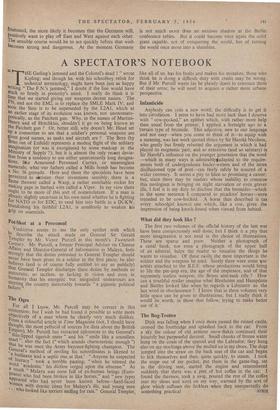For all I know, Mr. Purcell may be correct in
this contention; but I wish he had found it possible to write more objectively of a man whom he clearly very much dislikes. From a colourful article in Time Magazine (not, I should have • [iolight, the most pellucid of sources for data about the British Empire), Mr. Purcell has extracted references to the General's "thin-lipped tigerish sneer " and his " smile like a soundless snarl "; also the fact (" which sounds characteristic enough ") that he was once the Army bayonet-fighting champion. The General's method of reviling his subordinates is likened to a battleaxe 'and a septic one at that.' " Anyone he suspected of literacy " took a terrible pasting; " when he uttered the word ' academic ' his diction verged upon the obscene." As a result " Malaya was soon full of ex-human beings (Euro- peans) who had been broken in like horses," and " new types appeared who had never been known before—hard-faced women with drastic cures for Malaya's ills, and young men • • who looked like terriers sniffing for rats." General Templer, like all of us, has his faults and makes his mistakes; those who think he is doing a difficult duty with credit may be wrong. But if Mr. Purcell wants (as he plainly does) to convince them of their error, he will need to acquire a rather more urbane perspectiVe.


































 Previous page
Previous page